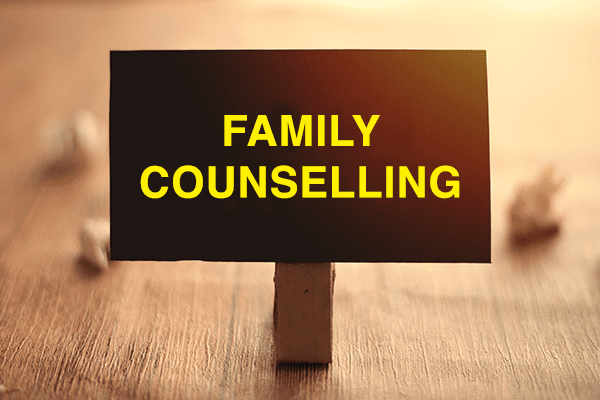Family counselling, as the name indicates, is a type of group psychotherapy for people who love and care for each other and often stay together. This may include, parents and kids, grandparents, uncles and aunts, partners, cousins, brothers and sisters, caregivers and any other members who are considered to be a part of the family.
Family therapy is designed to make the lives of those involved easier and more fulfilling. It helps everyone in the family understand each other so they may support each other unconditionally. Family counselling is helpful when the family is facing issues like mental or physical illness, unemployment, separation, divorce, adoption, moving to new cities, substance abuse, trauma, death and other such situations that can trigger negative emotions. In the Indian context, where many families harbour intergenerational relationships, discord among the members can often be seen owing to different perspectives or even with the onset of difficult old-age illnesses like dementia etc. Caregivers who are primarily responsible for the well-being of the elderly may face difficulties with the changes in behaviour and reduced cognitive abilities of the elders. In these situations, it is not uncommon for family members to become angry, agitated, tired and frustrated. With the timely intervention of family counselling, it is possible to address these issues and resolve them at the earliest for a happier and healthier relationship.
Family counselling involves talking about issues at hand and addressing problems in the family by tackling difficult conversations within a safe space. In the presence of a trained therapist, it focuses on improving communication between family members. The counsellor may choose to have individual sessions with the members or even as a group. For some, it may take a few sessions and for others, it may take longer. The counsellor may also give family exercises to help improve inter-family relationships. When the elderly in the family are afflicted with mental health illnesses that hamper their day-to-day lives or cause changes in behaviour, it may upset or confuse the other family members. It is important to get the disease diagnosed in time when you spot the initial symptoms. As family members lack the awareness of how to help the elderly, their behaviour may remain the same or worsen over time. In these situations, family therapy can help the family members understand the illness and help improve the elderly’s condition while maintaining their own mental well-being.
Family therapy helps:
- Build the family into a stronger unit – family counselling teaches open communication by using the right methods to interact with each member of the family. These sessions can help resolve issues of the past and equip you with skills that will help avoid such circumstances in the future. With improved communication, the family develops into a stronger unit that is capable of self-functioning and takes decisions collectively as one entity.
- Develops problem-solving skills to make life easier – family counselling also conducts sessions on effective problem solving without causing any problems or confrontations. It takes into account every member’s feelings, emotions and opinions and finds a way to pave a middle path for all the involved members of the family. With regular sessions, you can find that the family is better equipped to solve problems on their own without the intervention of a third party or without causing discord between the members.
- Improves communication skills within the family members – as intergenerational relationships evolve, it is important to work on our communication skills to effectively bridge the gap between the generations. With the insight from family counselling, you can expect a healthy way of communication between the members.
- Improves understanding about intergenerational conflicts and how to resolve them – with better communication among the members, intergenerational conflicts are greatly reduced with family counselling. When the family members understand each other, they resolve problems more easily.
- Provides information about mental illnesses that may be affecting other family members – families can be caught unaware when other family members have a mental illness. One must keep a check on symptoms and get a better understanding of the disease with family counselling, to understand what they are going through and how they can make things better for them.
As most families are not properly equipped or aware of mental illnesses like dementia, it’s best to opt for experts’ opinions. Samvedna Care offers family counselling for families dealing with elders’ dementia. After recognizing the symptoms and opting for family counselling, it is important to set family counselling goals like normalizing complicated feelings, redirecting negative thoughts into positive affirmations, improving communications between family members, processing grief and changes, establishing family roles and responsibilities and more. With elder care family counselling, it is now possible to harbour a harmonious relationship between the elderly afflicted with dementia and other caregivers and members of the family.

 +91 74280 97301
+91 74280 97301



